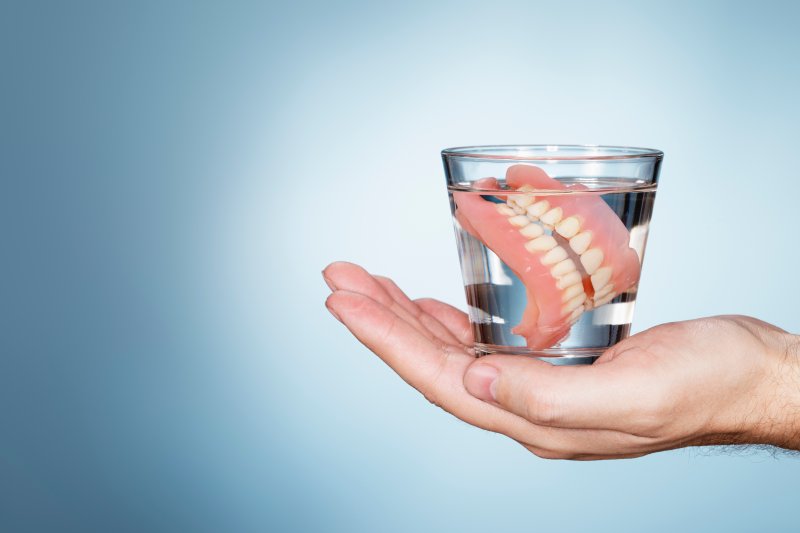
Do you notice that it’s harder to savor foods and drinks? You may think this is just a natural byproduct of aging, and you’d be partly right. However, there’s another possibility as well: It could be that your dentures are interfering with things. Though perhaps surprising, the prosthetics can sometimes reduce your sense of flavor. To prove it, here are three ways dentures and taste don’t get along and some tips on fixing the problem. Read them over and see if you could have richer fare in the future!
Why Do Dentures Affect Your Sense of Taste?
They Cover the Roof of Your Mouth
Sometimes the base plate of a full upper denture covers the taste buds on your mouth’s cheeks, throat, and roof. In doing so, it reduces the stimulation that your taste receptor cells receive from food. Consequently, your taste diminishes.
This loss of taste, though, can vary between denture wearers. Not everyone is significantly affected by dentures that cover the palate. Others get used to them over time and find that their taste eventually returns to normal.
They May Not Fit Well
When dentures don’t fit well, you’ll likely use decent amounts of dental adhesive to keep them in place. Unfortunately, said adhesive is known to alter taste sensation.
Often described as having a lingering ‘metallic taste,’ these denture creams can get in the way of an otherwise wonderful dish. Ensuring your false teeth are well-fitted will help keep such sensations at bay.
They Build Up Food Deposits and Stains
As they’re used over time, dentures naturally build up food deposits and stains that could contribute to taste loss. Even when you try to relish some new product, your taste buds might perceive leftovers to which they’ve become numb.
How to Improve Taste Sensation
Fortunately, your dentures don’t have to ruin your ability to have tasty things. You can improve taste sensation by:
- Cleaning Your Dentures Properly: Keeping them clean is one of the best ways to avoid stain buildup and food deposits that can alter the taste in your mouth.
- Using Less Denture Cream: If you rely too much on adhesive to keep your dentures in place, you might need a denture reline.
- Considering Implant Dentures: Upper denture wearers may want to switch to implant-retained versions, which don’t need a base plate that covers taste receptors.
You may lose some of your sense of taste as you get older. Still, consider the items above to ensure you keep such loss to a minimum!
About the Author
Dr. George A. Hoop is a dentist based in Fort Myers, FL, having earned his DDS from the Emory University School of Dentistry. He completed a periodontal specialty residency at the same school to further expand his clinical skill set. His strengths are in cosmetic, restorative, and dental implant makeovers, which he has always found extremely rewarding. Dr. Hoop currently practices at Total Dental Solutions and can be reached at his website or by phone at (239)-939-7299.

